Trajectory...
페이지 정보
Date.페이지 정보
Place. 021galleryContents
< Trajectory...>
Jaeha Lyu, seon ghi BAHK, Sanghm Choi
"What did time expect from us?" and "What did we expect from time?" are questions that Jaeha Lyu, seon ghi BAHK, and Sanghm Choi answer with their work. The exhibition follows the trajectory of three mid-career artists who circulate light, space, and time.
Jaeha Lyu is a media artist who breaks the paradigm of genres with
painterly and digital visual images.
He presents the
waves of art and technology, analog and digital things that lie beyond them, static
and dynamic moments, the West and East, and the Trajectory of a modern society
in which the uncentered hybrid is intertwined with the past and present. The
artist, who has presented painterly imaging and media display installation art,
explores the primordial human sensibilities and desires for contemporary beauty
and reconstructs them into images about inherited beauty. In addition, he
expands the horizon of contemporary art by constructing the concept of 'media-sculpture'
with LED displays. // He is also currently working on implementing a video
space that has been extended to infinite space through "Void Video ."
"Void Video," which seeks to combine eco-friendly living spaces and
art spaces based on ecology, floats an image of illusion in real space,
inducing new landscapes and imaginations that appear as they coexist in one
space. "Void Video" becomes hybridizierung as the real material
spaces undergo simultaneous changes through interaction with immaterial
imaginaries.
The 'Face' series presented in "Trajectory..." combines
a monitor that is a symbol of modern civilization with a cauldron lid that
allows the audience to feel the Trajectory of time and displays facial images. The
mixture of objects, video images, time, and space possess tradition and
contemporaneity through which the audience can meet the trajectories of the
time today.
"The
distinction between art genres has now become blurred. The era is full of
diverse materials and ideas. And now art is not something that only certain
people can enjoy. In this era, art lives among the public. In that sense, I believe
video media has the strongest appeal to the public. Art represents the time of
society. Above all, I want to create work that not only resonates with me but
with others."
-Artist's note-
seon ghi BAHK is an installation artist and sculptor who transcends the
boundaries of East and West with his painterly and symbolic work that interprets
space.
He dismantles and
transforms the empirical property into a transcendental physical property
giving the audience the experience of contextualizing, decontextualizing, and
recontextualizing space. The artist's work, charcoal hanging in space, embodies
specific meanings, crosses the boundaries of the past and the present, reality
and fiction, variability and permanence, and East and West. In his work of
using fragile charcoal to build a solid shape, the nylon strings also play an essential
role. The nylon strings not only support and hang the charcoal, but also
activate the space by collaborating with the black charcoal. Nylon strings are
transparent when they are one, but when multiple strings are gathered, they
play a role in activating the space. Charcoal, a burnt remnant, is a byproduct
of a tree that was both real and, at the same time, an archetype. Also, the geometric
objects like the squares, circles, and columns that the artist has installed in
the space are both real and imaginary.
The exhibition
showcases the artist's drawings and charcoal installations, including 'An Aggregation.'
"For me,
charcoal presents a chapter of nature hidden from the deepest of the surfaces, left
behind by the burning of wood as the result of a geological or natural
combustion. / In the end, it is a material in my conditions of existence, and
the derivative effects that conform to its presented form begin with this
material. After all, charcoal is like a brick in the form of architecture.
Over time, what
is manifested in the work becomes transferred to a visually simple, lightweight
material. To me, the poetic expression of hanging penetrates the inherent
environment, architecture, and the lightness of a truly unstoppable sculpture."
-Artist's note-
The
work of Sanghm Choi differs from the traditional 'painting .' His work
is called "multi-layered resin mortar casting." The artist creates
his work by pouring paints of the colors he mixed himself into a frame he made.
To
create his work, the artist repeats the process of 'drawing without drawing' by
pouring a construction material made with a mix of hardener and acrylic paint
into a resin mortar and waiting for it to dry. The high surface reflectivity
and density of colors revealed in the artist's façade are due to the physical
properties of these materials. His method of working, in which he lays down a
canvas on the floor and carefully pours paints, also shows his attitude of not
wanting to go against the physical properties. The work is followed by countless
times pouring paints and waiting for them to dry. The subtle breaths between the
layers are determined by the physical state and environment of the medium. The artist
also conforms to this illogical method and does not go against the tedious and
repetitive act. Thus, his screen reaches a state of insistent superposition of
layers and becomes the source of deep colors and a mirror-like surface. His
colors, the result of his penance as an ascetic, are paradoxically heavy, and his
time is close to agony.
His
work, the space in which the light of real nature and its existence is
developed into colors, is the volume of time in which light is monolayered.
"I repeatedly pour the paints over and
over until I choose to stop. The moment is determined by looking at the density
of the layers created at that time, not logically. The reason for the
repetition is simple. Life repeats itself each day. Its continuity gains its
significance as a regular order. Discipline and rules conceptualize chaotic
existence and gives meaningless things life. This is why I have decided to set
this process in art."
-Artist's
note-

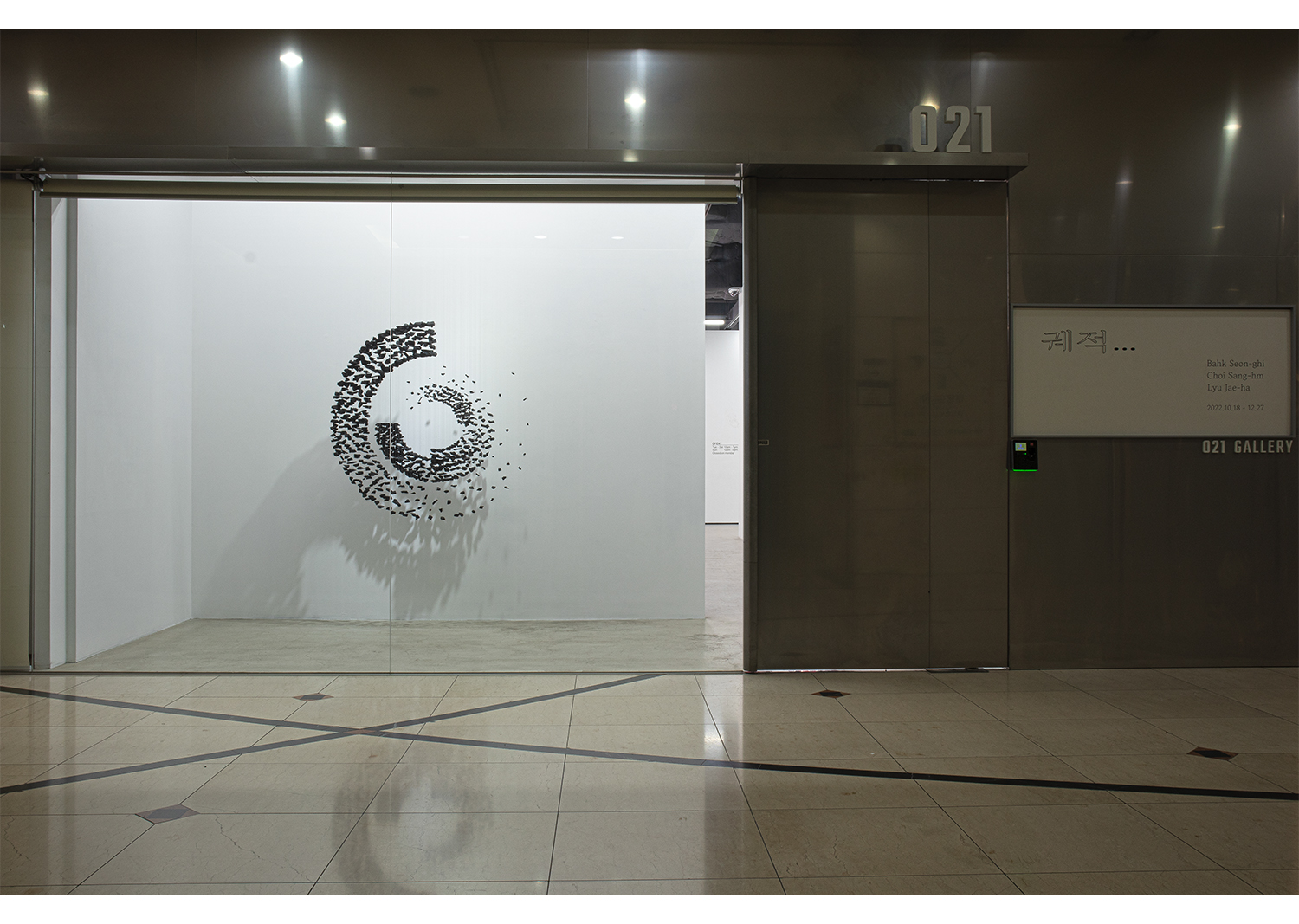
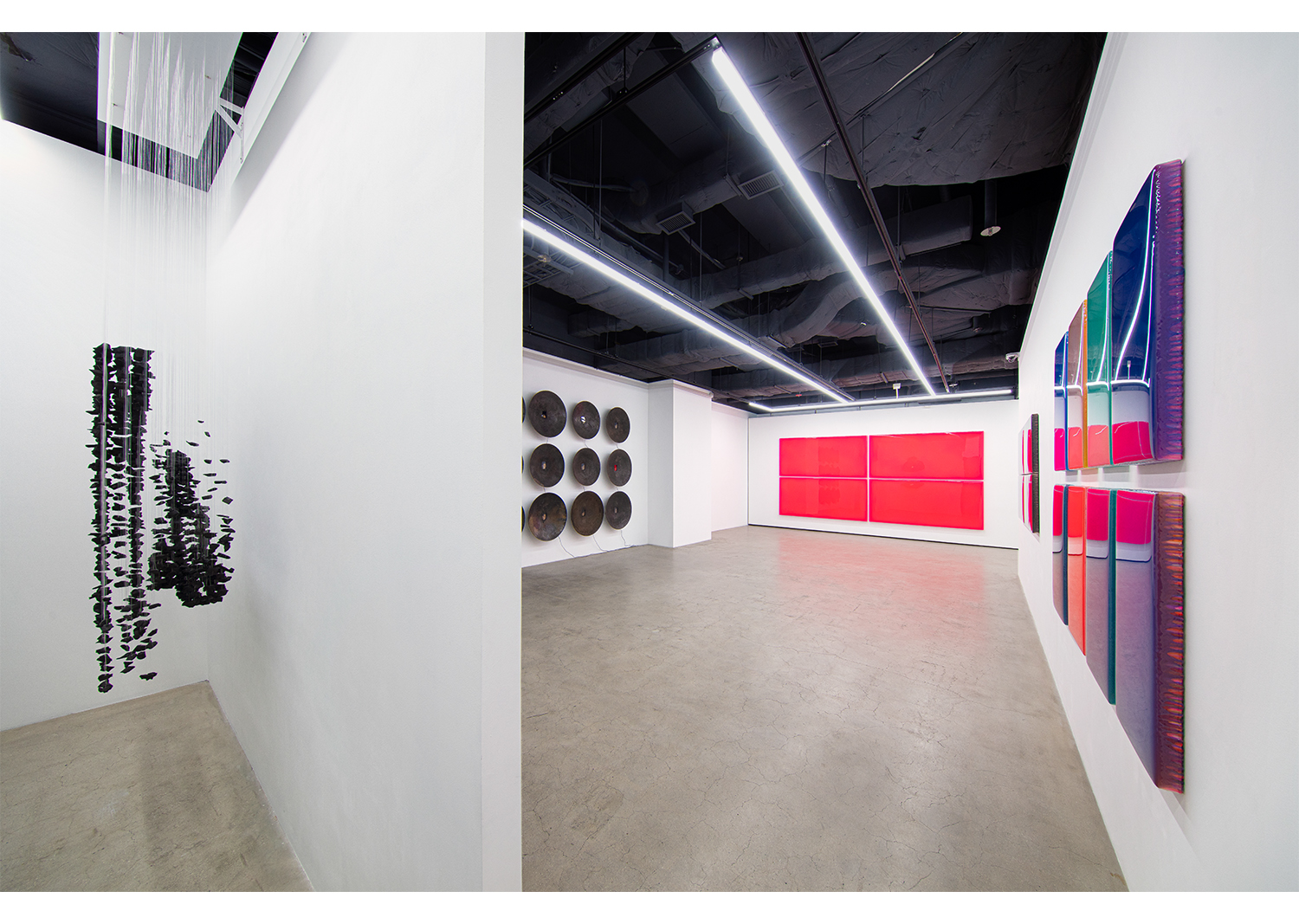
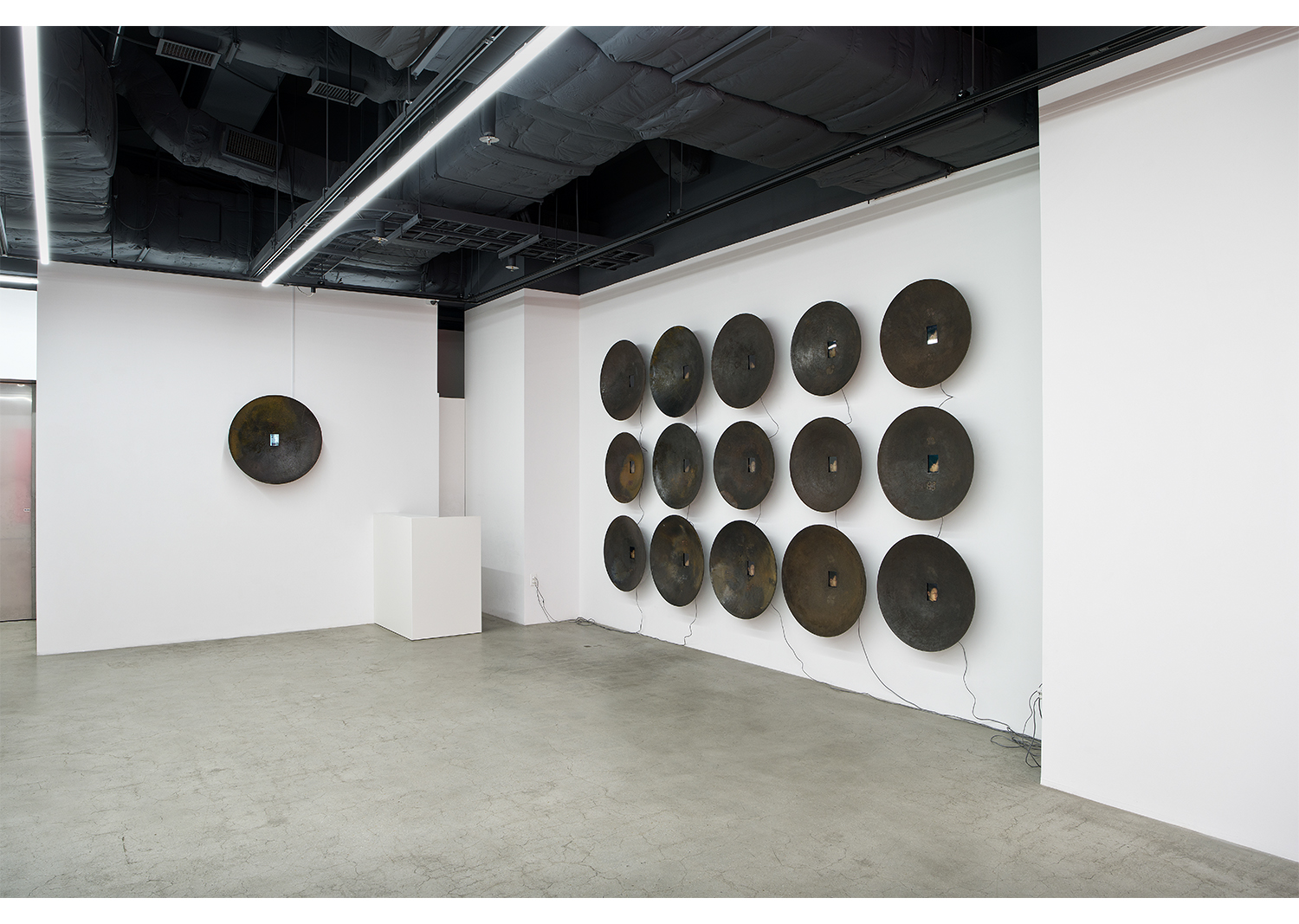
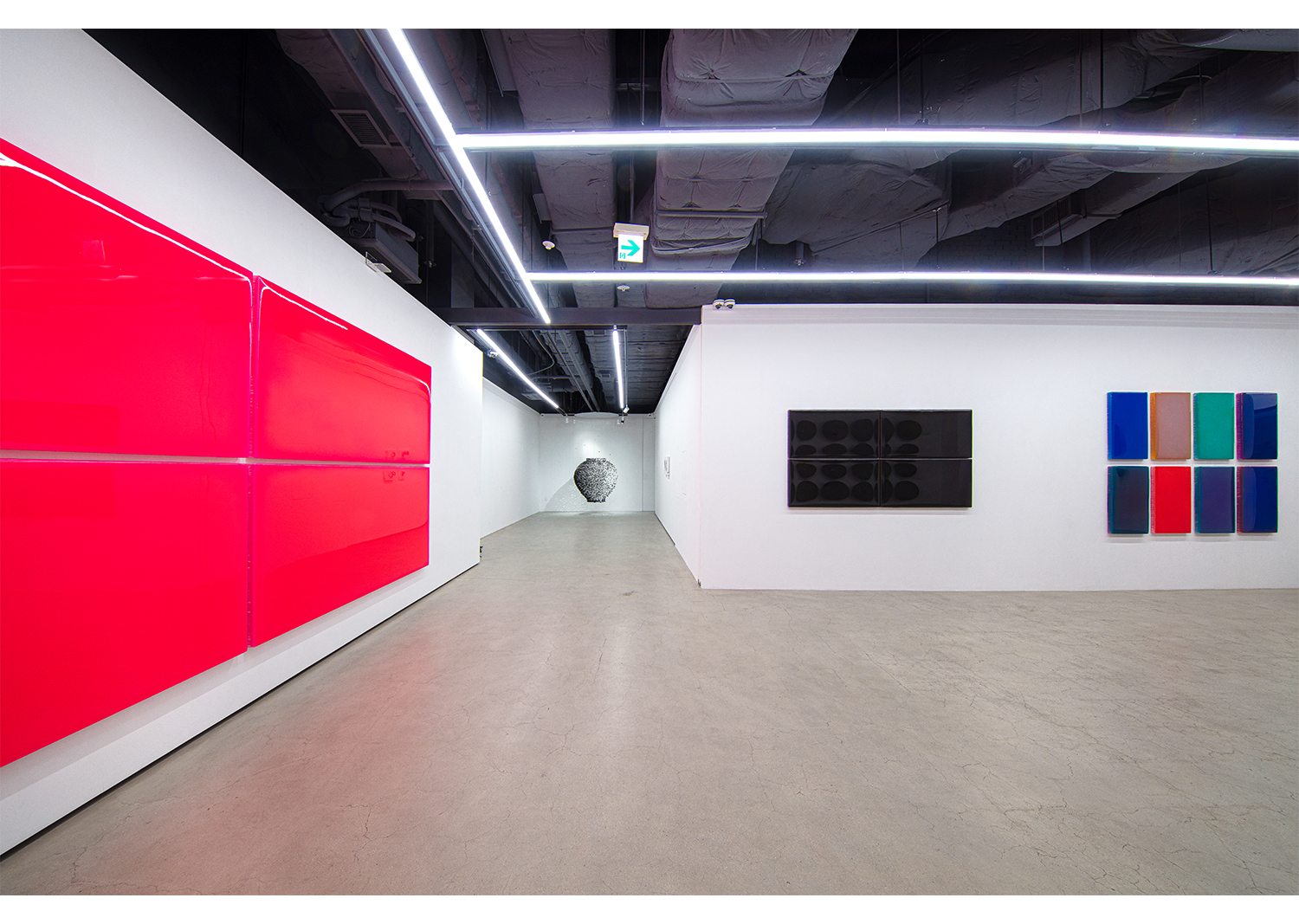
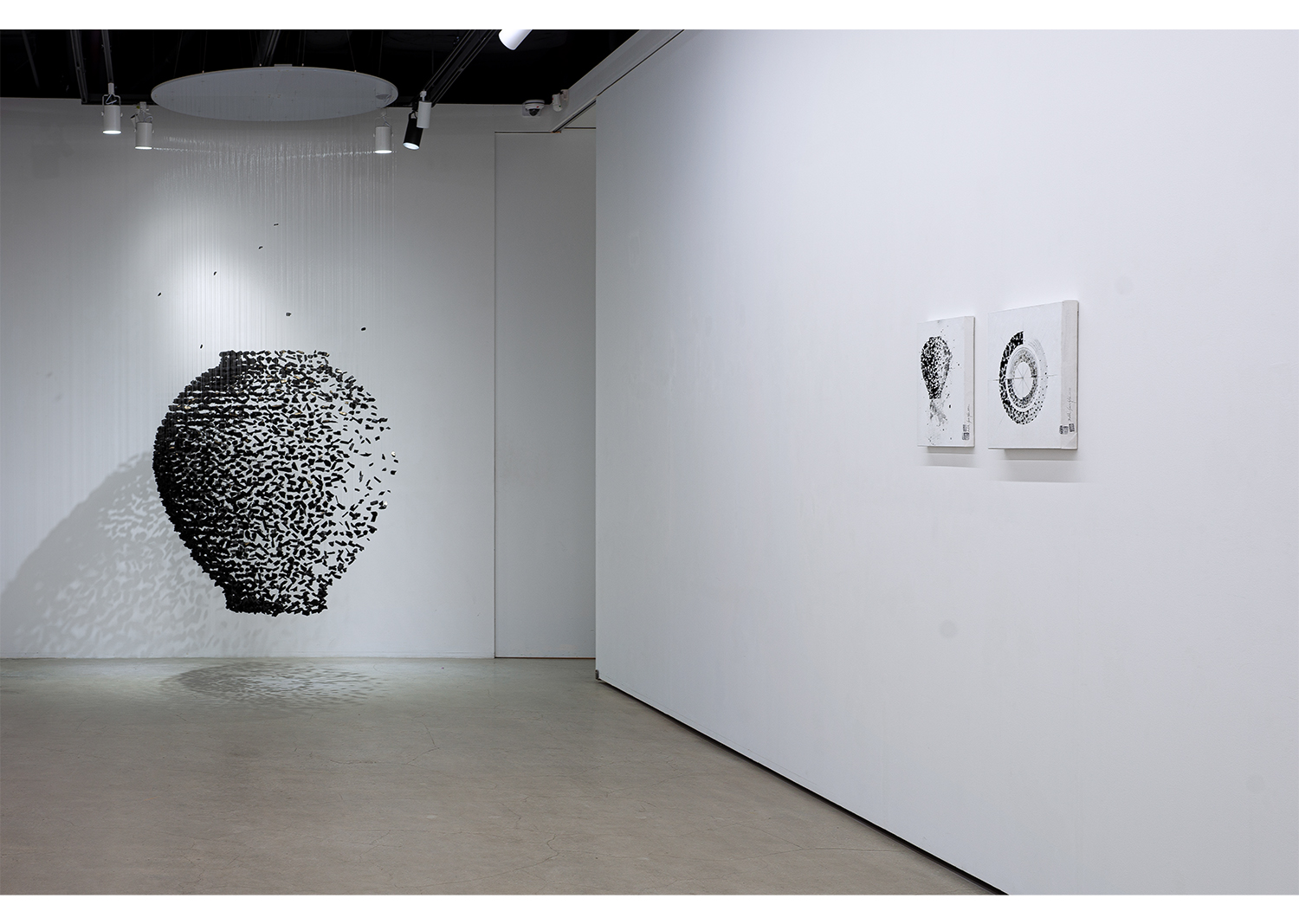
 instagram
instagram artsy
artsy